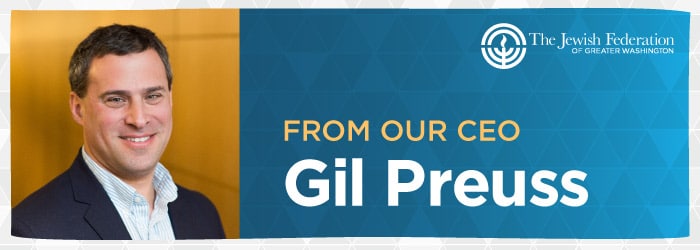-
19 April 2018

When I was a child growing up in Jerusalem in the early 1970s, Israel was a very different place than the one we know today. It was, in many ways, still a third world country. Meat was a scarce commodity. It was clear to everyone that Israel’s survival was constantly at risk. While the Six-Day War provided some sense of national relief and pride, as children, we were still taught how to look out for bombs and why not to pick up unknown objects. Terrorism was a constant part of life. Moreover, any sense of national comfort was eliminated by the Yom Kippur War – a war where almost every family was directly impacted. All around the country, children, parents, spouses and siblings died in defense of Israel, risking – and losing – their lives for the sake of their country’s survival.
But even then, I knew what an extraordinary place Israel was, and what an extraordinary story it belonged to. It was incredible to watch this new country take shape, to witness the early phases of a new national homeland for the Jewish people for the first time in 2,000 years. Even as a child, I knew there was something powerful about being present for the building of a country that came into existence only 50 years after the First Zionist Congress.
Seventy years after its founding, and in these perhaps more complicated times, it is still critical for us to celebrate the miracle of growth, prosperity and survival that is the continuation of Israel’s story.
In the years following the Six-Day War, Israel’s economy, society and character have evolved, grown and flourished. The country where meat was scarce just a few decades ago is now a world leader in technological, medical, security, cultural, culinary and agricultural advancement. And what’s more, in just seven decades, the existence of the modern state of Israel has completely transformed what it means to be part of the Jewish people. It has become central in shaping Jewish culture around the world. We are more secure, have a stronger sense of our identity and all have a place to call home.
That accomplishment—in such a short period of time—is truly breathtaking.
I say this not to ignore the challenges that Israel faces, but in the desire to not focus solely on those challenges. I fully recognize the many issues that Israel must confront internally and externally, including its relationship with the Palestinian people as they also seek a nation-state that can represent their own national aspirations. Far too often, however, we focus only on those challenges and forget to take a moment and celebrate the miracle of what Israel has become.
Each of us has a personal and unique way of relating to Israel. I hope that we all try to find that connection, no matter what it might be. For some, it comes through food and culture, for others, learning, and yet for others through pollical engagement. Embracing what ties us to Israel is a critical part of our communal mission: to engage with Israel, to grapple with Israel’s story and to take part in the conversation about Israel’s future and our role in it.
Today, as we mark Yom HaAtzmaut, Israel’s 70th Independence Day, my hope is that you feel the energy of our community and the many ways in which we are connecting with and celebrating Israel this year. I invite you to visit Federation’s newly launched celebrateisraelat70.com to explore the multitude of opportunities to connect with Israel right here in Greater Washington, and to learn about, engage with and enhance your connection to the history and modern-day culture of Israel.
I hope you will join me at many of our community’s Israel@70 events as we continue to learn and celebrate together.
L’Shalom (to peace),
Gil
